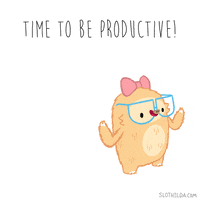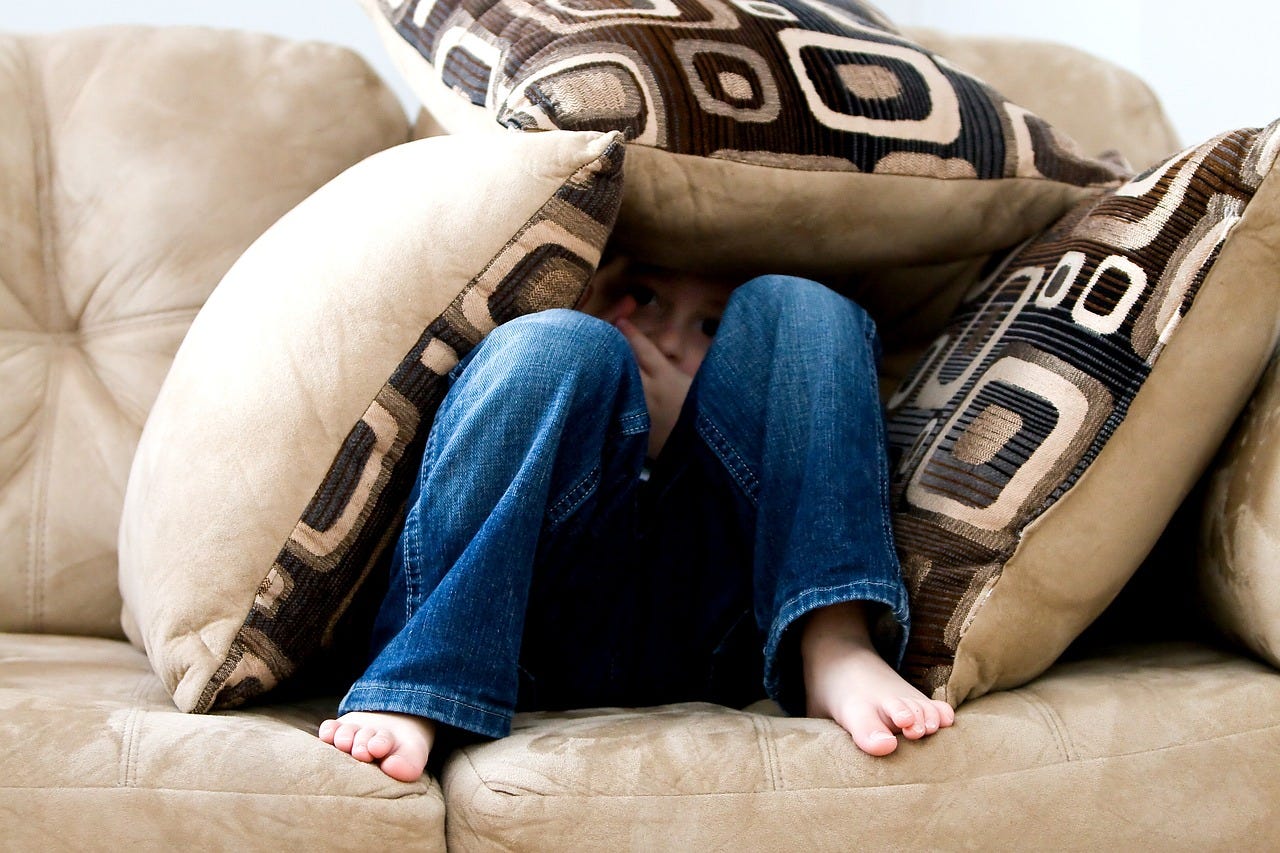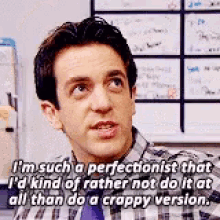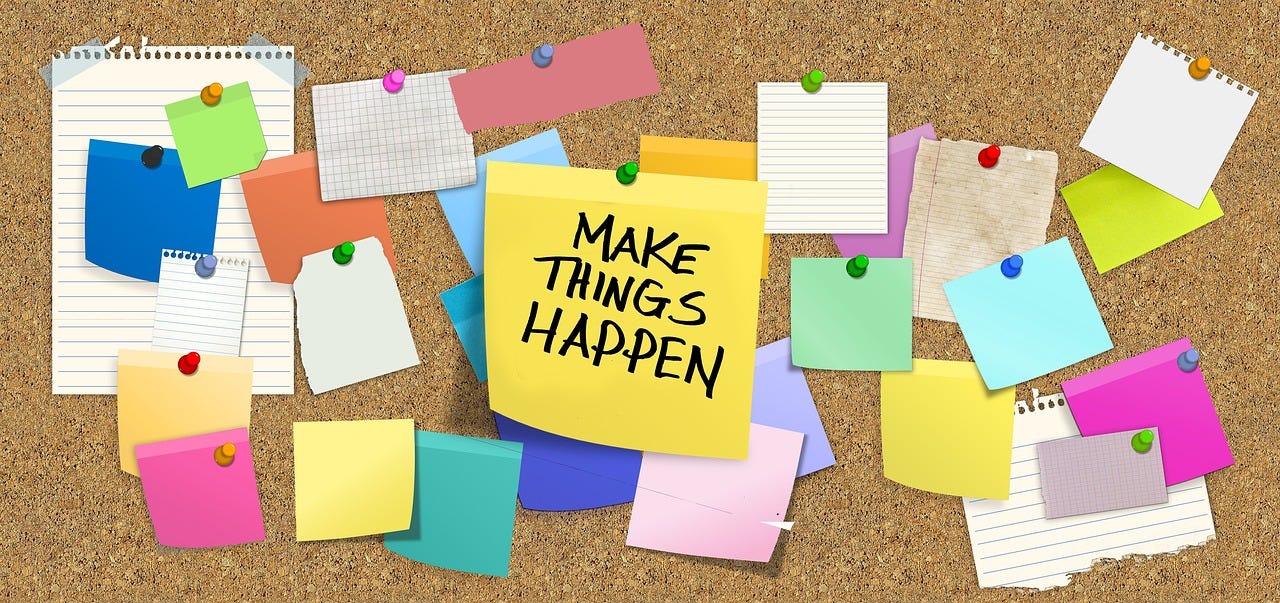Hi, I’m Kate. Ask an Author is an advice column for authors at all stages of writing, publishing, and hand-wringing. Have a question? Fill out this form and I’ll answer it in a future response!
I run Ask an Author entirely on donations, to keep information about writing and publishing free and available to all. Thank you to my paid subscribers who make this possible! If you’re able to make a contribution, please consider supporting this work. <3
Dear Kate,
I saw your editing website, which looks great by the way, and maybe this is something obvious I should have thought about before, but you have a line about things people might talk to a writing coach about and one of them is: “I want to be writing, so why is it so hard to just sit down and do it?” and I. . .yeah. That. Why IS it so hard???
Maybe this is a question for coaching, in which case feel free to not answer it in your Substack, but I guess I wanted to ask why you think people (me) procrastinate, and what people (again. . .me) can do about it. It’s not like writing is a chore I hate, like cleaning the kitchen! And yet I’m the worst procrastinator, and then I feel bad and guilty and lazy and like I can’t be a real writer or else I wouldn’t be like this. Sorry this is so rambly (clearly another problem my writing has). I guess my question boils down to why do people procrastinate on writing?
- J.B.
Dear J.B.,
This is an issue a LOT of people share, so I want to say first off that you’re NOT lazy, or not a writer, or a bad writer, or ill-suited for a creative life, or whatever else that voice in your head tells you when you’re feeling down about all this.
Procrastination is so incredibly common, no matter what you’re writing or how long you’ve been at it, which is why I specifically mention it as something people often come to talk to me about and work through together.
For reference: Here’s the website for Broad Editorial that J.B. is referring to (thanks for checking it out!). And here’s the section on coaching, which is where I list the question I often get, or some variation on it: “I want to be writing, so why is it so hard to sit down and do it?”
Procrastination is about way more than just “I don’t want to do it” or “I’ll take care of it later.” It doesn’t mean you’re lazy or weak-willed!! Focusing on self-criticism like that only obscures what’s really going on (while making yourself feel worse and exacerbating the cycle of avoidance).

People procrastinate for many reasons. I’ll break down a few of them here, and then get to some practical things I think you can do.
Emotional Regulation
Oftentimes, procrastination has nothing to do with the task and everything to do with our mood and our feelings around it. Procrastination emerges as a coping mechanism to avoid having to experience negative emotions like fear, self-doubt, anxiety, or low self-esteem related to our lack of confidence around the task at hand. It’s an emotional problem related to how we face and live with negative or uncomfortable feelings. If something is boring, frustrating, or makes us feel anxious or bad, then of course we don’t want to do it, because we don’t want to feel that way!
You can love writing AND have it fill you with self-doubt. Those two feelings aren’t mutually exclusive, and the voice that says “I love this” might have a hard time being heard over the voice that screams out “But I’m not good enough to do it.” Writing is challenging—or at least it should be, if you’re doing it right! Procrastinating protects us from the shitty emotions that go along with challenging ourselves (see “Fear of Failure,” below).
When we open up the blank Word doc and then immediately reach for our phone, we’re getting that dopamine hit (a positive emotion) from checking Twitter or texting a friend or doing literally anything but the writing that threatens to make us feel bad/insecure/incapable/fill in the blank (a negative emotion). We avoid feeling the negative emotion associated with the challenges and pitfalls of writing and reward ourselves with a more positive feeling instead.
And when we do that, and know that we’re doing it, we feel even worse about having procrastinated—exactly the way that you, J.B., have described. We might then redouble our efforts to write by making big promises (“Today I watched Netflix, but tomorrow I’ll DEFINITELY write and NOT procrastinate for one second I swear!!”). But this backfires for all the same reasons — or at least it never works out for me. Because now writing has even more pressure and self-blame attached to it, and we have all the more reason to avoid having to feel those bad things. Vicious cycles are vicious and very hard to break.
Even if you procrastinate by doing something you also don’t enjoy1 — the ole “I have an article due so my apartment is spotless” phenomenon, a.k.a. “productive procrastination”— you’re still participating in this avoidance —> reward cycle, because you’ve successfully avoided the negative emotions of writing in favor of something else. Our brains are smart, and they want to protect us! Cleaning your kitchen instead of revising the chapter you’re stuck on is your brain trying to take care of you — even if it’s not actually helping.
Perfectionism and the Fear of Failure - or of Success
A huge thing that comes up when people talk about why they avoid working on something they love is that they don’t want to be bad at it. No one wants to fail! If you don’t write down the thing in your head, then you don’t have to face whether or not it will be bad. Or not even bad! But not as perfect as the thing you’ve imagined, because anything can be perfect if it doesn’t exist.
Perfectionism stops us from the process of improving in our work. It stops us from being human and making mistakes, and it stops us from doing the best that we can if the best that we can is never going to be good enough (because what book is truly perfect??). We set up a completely unrealistic goal, and then berate ourselves for not meeting it. It’s really, really hard to feel positively about writing when you’re already setting yourself up to fall short. Perfect is the enemy of good. It’s also the enemy of done.
There’s a flip side to the fear of failure, and it’s a fear of success. What if the thing I write is actually good? What if it goes in front of readers and they don’t hate it? Maybe for some of you this doesn’t resonate. But maybe it does, because fear of success is a very real thing! Many of us know what it’s like to live as unpublished writers, or as authors living quiet lives in which we’re generally unknown. We don’t know what it would be like to have more attention for the work that’s for so long only lived inside our heads. It can be familiar to live in a certain way. We know what that one set of struggles is like. Life without those struggles, or with different struggles, is completely unknown, and the unknown is a tough place to strike off into. Self-sabotage is very, very real and shouldn’t be discounted when you’re trying to honestly face yourself and why you might be avoiding your work.
Realistic Time Management
People frequently struggle to have a realistic sense of how long a task will take them and how much time they need to allot. This is often, but not necessarily, something that affects those who are neurodivergent and/or struggle with executive function (more on that below). It’s not (only) a question about the emotions connected to a task, but about being able to successfully project into the future a sense of: 1. what the task is, 2. how to get it done, and 3. how long it will actually take.
It’s very common to be optimistic about how how much time something needs. “I’ll be there in ten minutes!” — even when there’s no way that’s possible. “This time I’ll definitely, without a doubt, finish the Substack before lunch!” — even if I’ve never, not once, written one that quickly. We often think writing will go faster and smoother than it does, and then feel derailed (there’s that negative emotion again!) when the chapter takes longer or the revisions are messier or the words don’t flow the way we think they “should.” Negative self-talk creeps in: “If I were smarter, I’d be done by now.” But what makes us think that in the first place??? It’s an emotional problem, but it’s also a time problem. If we’d allowed ourselves enough time to actually write the chapter, we wouldn’t be mad at ourselves for not being done yet.

Writing can be hard when you have a huge chunk of time and realize you need to fill it by. . .writing. (Because of the negative emotions we may experience/try to avoid experiencing as we write). Writing can also be hard when you don’t have enough time, and so many things are competing for your attention. Procrastination doesn’t only look like avoiding the task at hand. It can also look like always putting other things first, such that the writing inevitably slides to the bottom of the list.
This can lead to the same cycle of negative emotions —> avoidance. Since we haven’t worked on the manuscript in so long, it’s a bigger deal to open up the computer and get back into it. And if it turns out that, say, we only have fifteen minutes before the next meeting, we tell ourselves it isn’t enough time to write anyway, and then feel bad and guilty for not writing even as we’re justifying to ourselves all the reasons for not doing it. This is connected to the emotional regulation I outlined above, and it’s also looped in to questions about how we’re not just managing our time but perceiving our time. Fifteen minutes IS enough to open your manuscript and feel connected to it and keep it on your mind. But it’s not enough to write and edit and finish and polish up a chapter. Having a realistic sense of what time you have available, and how you’re using it, can go a long way toward reducing the stress and negativity associated with writing / not having enough time to write.
Executive Function
Our executive functions are mental processes that allow us to control our other cognitive abilities. It’s the higher-level thinking we need to organize, plan ahead, make decisions, and see the bigger picture. Writing takes a lot of executive function. It involves planning, strategizing, breaking down a large project into its components, and executing each part. You can’t just sit down and write a book! You have to think through all the pieces that go into that, and then develop a sense of, okay, I need to work on edits but what does that mean? Where do I begin? I talk to people who berate themselves for being “stupid” or “lazy” or “incapable,” but many times the problem is that they simply don’t know where to start. Once we map out a plan for what to tackle and how to tackle it — which part of which chapter should they work on today? — they’re able to hit the ground running.
This isn’t so much a problem with emotional regulation or time management, although those are also common and valid struggles to have. This is something that stems from executive function and figuring out how to tackle a project. Are you avoiding working on your project because you’re not sure what to work on, and it feels overwhelming to start? Again, it’s not because you’re lazy or bad at writing! But you might benefit from working on your own or with a coach or therapist or writers group to address this specific aspect of your process.
Tips and Tricks
Sometimes we avoid working on something because we genuinely don’t want to do it. Sometimes our brains are trying to tell us something, and we should listen! But you, J.B., say you want to be writing, so rather than focus on letting go of that which doesn’t serve us, I’m going to share here some ideas about how to get back to what you love.
Extend yourself some grace. It’s easier said than done, but the first step is often to shift the negative self-talk that accompanies writing. When you start beating yourself up about not writing, try to gently point out that you’re doing it and see if you can quiet that voice. It’s hard to reframe ingrained patterns, and it won’t happen overnight. But it can make a big difference to be a little kinder to ourselves. Remember, you’re trying to break the cycle in which writing is associated with negative emotions, and that includes self-criticism.
Envision a few steps ahead. Thinking about what you have to do, and picturing yourself doing it, can make each task feel less nebulous and overwhelming. Combining that with a more positive relationship to yourself — picture yourself doing the task well, not just flailing at it! — can help reframe the way it feels to sit down at the computer and write.
Remove distractions. I’ve talked about this before, and it really does make a difference. We’re so addicted to these small dopamine hits, precisely because it feels better than the negative feelings that can come with writing. Cut the wifi, put your phone in another room, delete the social media app that’s sucking up your brain space — make it harder to mindlessly reach for distraction. Over time, you’ll become more comfortable sitting with the difficult emotions associated with writing and won’t need to keep turning away.
End on a positive note. I’ve developed a habit for myself where I always write a little less than I have time/energy for each day. If I go through all my juice in one writing session, then I feel completely beat by the end and am more reluctant to get back into it. Ending before I get to that point keeps me more excited to return to the page.
Remove friction. Whatever it is that makes it harder to write, try to get rid of it so the process can be as smooth as can be. Maybe you want to get up early and write before work. Having for breakfast already made, or your work stuff ready to go so you don’t have to scramble, can help remove the barriers between you and writing, so there’s nothing left but to sit down and do it.
Don’t wait for the ideal time. A little bit of writing adds up over time, and insisting on having enough time/the right kind of time/the right kind of space and conditions to write can be a way of making excuses for avoiding the task. Of course everyone has particular needs to make things work, and I’m not discounting that! My point is that a small amount of writing can be so much better than no writing at all.
Be open to making mistakes. One way to combat perfectionism is to write away from the computer, like on your phone, in a notes app, in a notebook, or on whatever you have lying around. This can help make it feel less like I’m Writing The Next Great American Novel and so Everything Has to be Just Right. Morning pages, journaling, or intentionally writing some things that aren’t part of your main project can also help loosen you up and feel more comfortable with making mistakes. Remember that a draft is a draft for a reason. Focus on the thing you’re doing (writing) and not the thing you aren’t doing (editing). Or keep your eye on the thing you’re editing (focusing on X in this draft) and not the thing you’ll get to later (focusing on Y in the next read-through). Remember that when you’re reading a published piece, you’re not reading the drafts the author went through. Comparing your draft to someone’s edited work is completely unfair to yourself! See number #1 on this list: it’s time to be a little kinder to yourself.
Celebrate your wins! The procrastination monster rewards not writing, but there are good feelings that come when you sit down and write. Rather than beating yourself up about what you didn’t do, remember to honor the things that you did do. Even something as seemingly simple as opening the laptop isn’t always easy, and you’re allowed to feel good about the time you got your butt in the chair and the sentences you worked on. Every project gets finished one word at a time.
People’s reasons for procrastinating may be different, and so they may need different tools and strategies to address it. If you, J.B., or anyone else would like to work one-on-one on procrastination and starting—and then finishing!!—your project, reach out! I hope that this (long! sorry! it’s such a big topic!) letter can help at least get you asking yourself some deeper questions about why you might be avoiding your work, and what you can do to stop rewarding your procrastination and start rewarding your writing instead. The more self-awareness you can have, the better position you’ll be in to figure out what works best for you, so you can embrace the tools that serve you and ditch the ones that don’t.
Please keep your questions coming, and let me know how I can help!
Kate
I don’t mean to say here that writing isn’t enjoyable! It is! Just that if you’re avoiding it, it’s worth unpacking WHY the avoidance. Or maybe you’re writing something you’re not enjoying, and maybe you should heed the urge to procrastination and work on something else?






